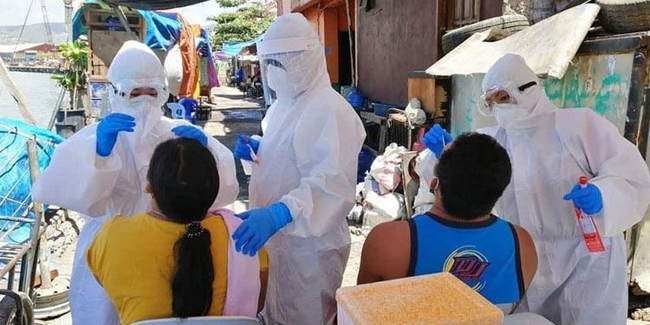The Theta COVID-19 variant was no longer a “variant of interest”, according to WHO.
The World Health Organization (WHO) said that the Theta COVID-19 variant — the COVID-19 variant first detected in the Philippines — was no longer a “variant of interest”.

The World Health Organization had downgraded the COVID-19 variant of interest first detected in the Philippines.
On Tuesday, the global health body removed the Theta COVID-19 variant from the list of “variants of interest”, reclassifying the said variant as “alerts for further monitoring”.
The World Health Organization also said that reported cases of the said variant have decreased, adding that cases globally were relatively low.
READ ALSO: WHO Names P.3 COVID-19 Variant As “Theta”
“Reported detections of these variants have decreased over time, suggesting a decline in their respective incidence worldwide, and diminishing public health risks relative to other VOCs (variants of concern) and VOIs (variants of interest),” the World Health Organization said, referring to former VOIs Epsilon, Theta, and Zeta.
It was last March when the Department of Health (DOH) confirmed that a new COVID-19 variant called P.3 had been traced to the Philippines. According to WHO, the said variant was potentially more transmissible and may have increased resistance to neutralizing antibodies.
Meanwhile, the WHO said that the Lambda COVID-19 variant was not yet a “variant of concern” as it was remained to be a “variant of interest”.
“Lambda at this point in time still remains a variant of interest. That does not mean that we are not following it, we are still studying it and it doesn’t warrant a classification as a variant of concern at this point in time. It is present in several countries I believe, 20 to 30 countries now, but so far, it has not demonstrated characteristics that will warrant its classification as a variant of concern,” WHO representative to the Philippines Dr. Rabindra Abeyasinghe said.
What can you say about this? Let us know in the comments below.
For more news and updates, you may feel free to visit this site more often. You may also visit Newspapers.ph via our official Facebook page and YouTube channel.
